- ABOUT IHSSABOUT IHSS
- PEOPLE
- NEWS & EVENTSNEWS & EVENTS
- RESEARCHRESEARCH
- FELLOWSHIPS & GRANTSFELLOWSHIPS & GRANTS
- TEACHING & LEARNINGTEACHING & LEARNING
- PUBLICATIONSPUBLICATIONS
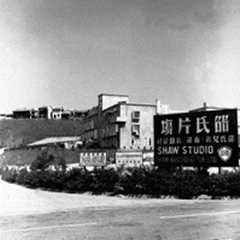
The Hong Kong Memory Project (HKMP) is a response to UNESCO’s “Memory of the World” Programme. Led by Dr. Elizabeth Sinn and sponsored by the Hong Kong Jockey Club Charities Trust, the primary objective of the project is to build a digital repository for the collection, conservation, preservation and presentation of Hong Kong’s cultural heritage, in order to educate, inspire and engage the people of Hong Kong as well as overseas. The Institute, with the support of the Hong Kong Universities Libraries, was commissioned to develop the HKMP web portal.
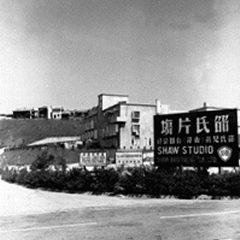
The Hong Kong Memory Project (HKMP) is a response to UNESCO’s “Memory of the World” Programme. Led by Dr. Elizabeth Sinn and sponsored by the Hong Kong Jockey Club Charities Trust, the primary objective of the project is to build a digital repository for the collection, conservation, preservation and presentation of Hong Kong’s cultural heritage, in order to educate, inspire and engage the people of Hong Kong as well as overseas. The Institute, with the support of the Hong Kong Universities Libraries, was commissioned to develop the HKMP web portal.
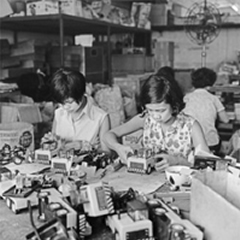
A wide range of historical materials, including text documents, photographs, posters, sound recordings, motion pictures and videos, have since been collected through this project. By the completion of the first five-year phase in late 2011, 11 thematic collections and 6 exhibitions on topics such as the history of education, Kai Tak Airport, traditional Chinese festivals and aspects of village life were uploaded online. Oral history accounts from senior citizens as well as interviews with veteran industrialists and factory workers also make up a portion of the records, reflecting early life in Hong Kong and the territory’s industrial development. The Hong Kong Memory Portal was officially opened to the public in December 2012, and subsequently expanded to 30 collections and 15 exhibitions.
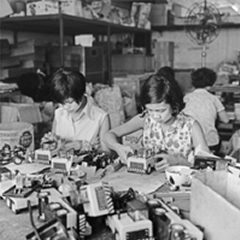
A wide range of historical materials, including text documents, photographs, posters, sound recordings, motion pictures and videos, have since been collected through this project. By the completion of the first five-year phase in late 2011, 11 thematic collections and 6 exhibitions on topics such as the history of education, Kai Tak Airport, traditional Chinese festivals and aspects of village life were uploaded online. Oral history accounts from senior citizens as well as interviews with veteran industrialists and factory workers also make up a portion of the records, reflecting early life in Hong Kong and the territory’s industrial development. The Hong Kong Memory Portal was officially opened to the public in December 2012, and subsequently expanded to 30 collections and 15 exhibitions.
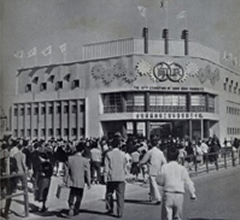
Besides the online portal, the HKU project team has also shared about their work and experiences through other avenues. In October 2012, Dr. Wong Wai Ling gave a seminar titled “How Oral History Tells about the Meanings of Community?” at the Institute’s Departmental Seminar Series, where she shared the Memory Project’s concept, method, process and outcome, while directly using materials from the website. Other scholars, interested individuals and local NGOs experienced in and committed to preserving Hong Kong’s history and culture have contributed to the project in different ways. In addition, to encourage student participation and broaden their learning experience, a subsidiary platform – the School Memories website – has been created to help them preserve and share their schools’ historical records on the internet.
Effective from 1 December 2014, the Hong Kong Memory website has been handed over to the Leisure and Cultural Services Department, the Government of the Hong Kong Special Administrative Region for continuous maintenance and development.
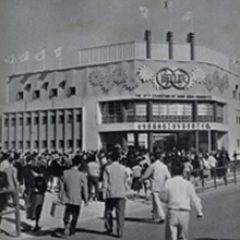
Besides the online portal, the HKU project team has also shared about their work and experiences through other avenues. In October 2012, Dr. Wong Wai Ling gave a seminar titled “How Oral History Tells about the Meanings of Community?” at the Institute’s Departmental Seminar Series, where she shared the Memory Project’s concept, method, process and outcome, while directly using materials from the website. Other scholars, interested individuals and local NGOs experienced in and committed to preserving Hong Kong’s history and culture have contributed to the project in different ways. In addition, to encourage student participation and broaden their learning experience, a subsidiary platform – the School Memories website – has been created to help them preserve and share their schools’ historical records on the internet.
Effective from 1 December 2014, the Hong Kong Memory website has been handed over to the Leisure and Cultural Services Department, the Government of the Hong Kong Special Administrative Region for continuous maintenance and development.
Copyright © 2025 Hong Kong Institute for the Humanities and Social Sciences, The University of Hong Kong. All Rights Reserved.